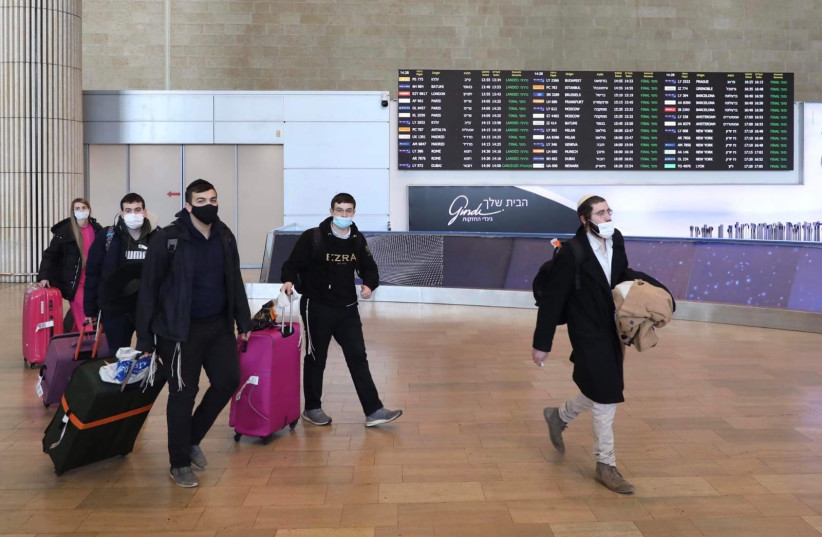There are lots of players in the current crisis affecting Ukrainian Jewish communities because of the threat of a Russian invasion.
They include the Jewish Agency, the Diaspora Affairs Ministry, the Aliyah and Integration Ministry, the American Jewish Joint Distribution Committee, the International Fellowship of Christians and Jews (IFCJ), Chabad and other local Jewish communities and organizations.
They have all been constantly on Zoom and conference calls, but there is still no concrete plan, at least one that they are willing to share with the media.
Sources in Ukraine’s Jewish community have told The Jerusalem Post they are frustrated with the current situation.
“Israeli government and organizations are engaged in Zoom calls and phone calls all day, but nothing concrete is happening yet,” one Jewish Ukrainian said.
The Diaspora Affairs Ministry said it is working around the clock to find a concrete format to assist the communities in need. The ministry said it would announce its support in the coming days.

The Aliyah and Integration Ministry said it is ready for a mass wave of immigration from Ukraine, while aliyah from the beleaguered country remains stable.
“Don’t procrastinate, make aliyah” Sephardi Chief Rabbi Yitzhak Yosef said Monday in a “letter of encouragement” to Jewish communities in Ukraine. In the letter, he called for all Ukrainian Jews to be safe but also to make aliyah.
“Our brothers and sisters in Ukraine... at such times as the sounds of war are heard, it is fitting for every religious Jew to hasten his journey to the Holy Land,” Yosef wrote. “The ascent to the Holy Land is always a great and very important commandment, and at all times [Jews] should strive to reach the Holy Land and especially the Holy City” of Jerusalem.
The Jews in Ukraine, he wrote, “fear war, yet this situation is kind of a call from heaven to ascend from all the foreign lands throughout the Diaspora to the Holy Land, and especially Jerusalem, the Holy City. These are the places where the Divine is, and where God gives us more protection.”
“There is a sacred duty upon every [secular] Jew or religious Jew in all the lands of the Diaspora to make an effort to hurry and hasten his way to the Holy Land, and to make a speedy ascent to our Holy Land, and not to procrastinate at all, and hurry to purchase a plane ticket,” Yosef wrote. “And God willing, a good apartment, good absorption, food and livelihood” await you.
Stefan Oscar, executive director of JDC’s former Soviet Union operation, said in a statement: “As news from Ukraine grows more worrying, we stand at the ready to maintain our humanitarian lifeline to a vulnerable population of needy Jews and Jewish communities in Ukraine. Today, we are already responding to a crisis of human need among them.”
“For weeks we have been preparing our staff, volunteers and social welfare centers to address this need and possible emergency situations,” he said. “They continue to provide life-saving food, medicine, home care and remote care to the tens of thousands of needy Jewish elderly and families we serve in 1,000 locations around Ukraine.”
The IFCJ on Monday said it is launching an emergency program to help the Jewish community in Ukraine with about $1 million, in addition to its ongoing annual financial assistance. Local Jewish organizations will receive help to promote the establishment of emergency centers, strengthening the community’s security system, it said.
The IFCJ also pledged to help strengthen the transportation system and the organization of accommodation and shelters, if necessary.
The IFCJ said it intends to ensure satellite communication capability, to immediately purchase and distribute food for the coming months and to purchase medicines and other services.
“IFCJ has been assisting Jewish organizations such as the Association of Jewish Communities FJC, Chabad, Tikva Israel-Odessa, Shema Israel and others throughout the Soviet Union,” it said in a press release.
IFCJ president Yael Eckstein, who visited Ukraine last week, said: “We are following with concern what is happening in Ukraine and hope that the situation will not deteriorate into a general war.”
